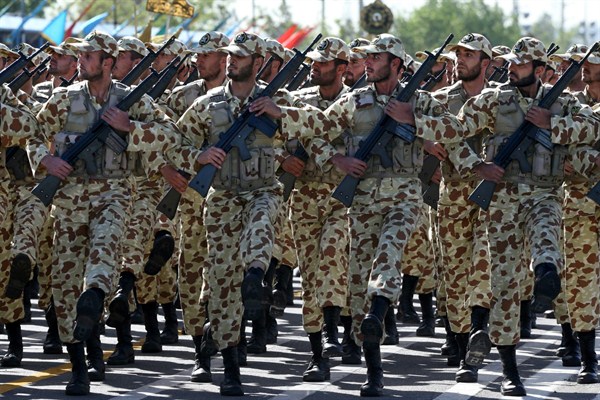The sudden return to tough talk about Iran by the Trump administration makes one wonder if it has a deeper strategy to realize Trump’s campaign promises about the nuclear deal, as well as to address Iran’s destabilizing regional activities. The signals about Iran can be read several ways: pressure to deliver on that national security priority as the 100-day milestone approaches; discomfort with the routine bureaucratic declaration that Iran is actually complying with the nuclear agreement; or a more ambitious and disturbing goal of provoking Iran into a more open confrontation.
For many weeks, it looked like Iran was on the back burner of the Trump administration’s national security concerns. Mounting tensions with North Korea quickly became the highest priority, and routine official exchanges with key European and Asian partners have focused on developing rapport at the leadership and Cabinet levels. The administration quietly noted that the Iran agreement, flawed though it may be in the eyes of the president and his advisers, did not require immediate action. The only initiative has been to add more sanctions against Iran for its ballistic missile activities, which is outside the parameters of the nuclear deal. Officials frequently mention new policies to disrupt Iran’s regional activism viewed as hostile to U.S. interests, but without great urgency to develop the details of how to do so.
In recent days, however, the administration has sent a series of messages to demonstrate its deep concerns about Iran and its commitment to applying a more assertive and effective policy than the previous administration. Trump continues to use the very simple formula that the nuclear deal negotiated by Iran and six major powers in 2015 is “a terrible agreement.” When asked this week by an AP interviewer whether the U.S. would remain a party to the deal, he replied that “it’s possible we won’t.”

